Supplements That Support Dopamine and Serotonin in Co-Dependent Patterns
Introduction
Co-dependency isn’t just about emotional attachment—it’s also about chemistry. The drive to please, the fear of abandonment, the exhaustion after caretaking, and the highs and lows of approval are all shaped by two key neurotransmitters: dopamine and serotonin.
When these brain chemicals fall out of balance, the result is a roller coaster of mood swings, motivation crashes, and emotional dependency. You might feel calm only when someone else is happy with you, or anxious when there’s distance in a relationship. This is not weakness—it’s a biochemical survival strategy that your nervous system learned early on.
Fortunately, there are ways to support the body and brain to rebuild internal balance. In this article, we’ll explore how dopamine and serotonin function within co-dependent patterns and how certain natural supplements can help you restore stability, self-confidence, and inner peace. 🌸
Looking for supplements for This? Click here.
The Brain Chemistry of Co-Dependency 🧩
To understand which supplements help, it’s important to see how co-dependency shows up at the neurological level.
Co-dependency is fueled by inconsistent reward signals. When you receive validation or affection, dopamine spikes, creating a sense of euphoria and safety. When approval is withdrawn, dopamine drops sharply—triggering anxiety, self-doubt, and rumination.
Meanwhile, serotonin—the neurotransmitter that stabilizes mood and gives a sense of inner security—becomes depleted from chronic stress. This combination of high dopamine reactivity and low serotonin stability leaves you emotionally dependent on external reassurance.
Over time, your brain’s reward system becomes tuned to relationships rather than internal peace. You start to crave connection as if it were oxygen, even when the connection is painful. This creates a chemical loop of emotional highs and lows that feels impossible to escape.
To rebuild balance, you must retrain the brain’s reward system. That starts with nourishing it.
Understanding Dopamine: The Spark of Desire ⚡
Dopamine is the neurotransmitter of drive, pleasure, and reward. It fuels motivation and focus but also plays a major role in attachment and bonding. When someone praises you, texts you, or shows affection, your brain releases dopamine—creating a powerful sense of relief and worthiness.
In healthy relationships, dopamine helps maintain connection and enthusiasm. But in co-dependency, it becomes unstable. You feel energized by approval and deflated by absence. The nervous system starts to depend on relational drama to stay stimulated.
This is why codependent dynamics can feel like addiction: the brain is literally chasing the next dopamine hit. 🎢
Over time, dopamine receptors can become desensitized. This leads to emotional numbness, low motivation, and burnout. Supporting dopamine production naturally can help the brain return to equilibrium—so motivation, joy, and connection stop depending on chaos.
Understanding Serotonin: The Chemical of Peace ☀️

If dopamine is the spark, serotonin is the anchor. It provides emotional stability, optimism, and resilience. Serotonin helps you feel safe in your own skin, even when things are uncertain.
In co-dependent patterns, serotonin depletion is common. Chronic stress, over-giving, and emotional suppression increase cortisol, which blocks serotonin synthesis. The result? Anxiety, obsessive thinking, and a feeling that nothing you do is ever enough.
Serotonin also regulates sleep and digestion—two areas often disrupted by co-dependency. Low serotonin leaves the mind restless at night and the gut tense during the day. It’s a full-body imbalance that mirrors the emotional instability of over-caregiving.
When serotonin rises again, calm and confidence return. You begin to feel at home within yourself, no longer desperate for reassurance. 🌿
How Stress Breaks the Dopamine–Serotonin Connection 💥
Under chronic stress, the brain’s chemical harmony collapses. Cortisol—the main stress hormone—overstimulates dopamine release at first, making you feel temporarily “high” on fixing problems. But over time, it depletes dopamine reserves and blunts serotonin production.
This creates a vicious loop: you feel anxious and depleted, then seek connection to feel relief, which releases dopamine, but the relief fades quickly, leaving you lower than before. The nervous system can’t tell the difference between emotional urgency and physical threat, so it stays in fight-or-flight mode.
The result is emotional exhaustion, poor focus, and a persistent sense that peace is just one more conversation away. To heal, you need to restore both dopamine (motivation and reward) and serotonin (stability and calm) at the same time.
Supplements That Help Restore Dopamine Balance 🌱
Several nutrients and herbal compounds can naturally support dopamine synthesis and receptor sensitivity. These aren’t stimulants—they nourish your brain’s ability to create its own motivation chemistry instead of depending on relationship drama or external excitement.
L-Tyrosine 🧬
This amino acid is a direct precursor to dopamine. It supports alertness, motivation, and focus, especially during stress. When dopamine levels crash, L-Tyrosine helps replenish them without overstimulation. It’s particularly helpful for those who feel mentally foggy or struggle to start tasks after emotional exhaustion.
Rhodiola Rosea 🌿
An adaptogenic herb that stabilizes dopamine and serotonin simultaneously. Rhodiola helps the brain handle stress more efficiently, reducing fatigue and anxiety while improving mood resilience. It’s excellent for people who feel emotionally overextended or stuck in cycles of burnout.
Omega-3 Fatty Acids 🐟
EPA and DHA (found in fish oil or algae oil) are vital for dopamine receptor function. They improve cell membrane fluidity, allowing neurotransmitters to signal effectively. Omega-3s also have antidepressant and anti-inflammatory properties that support long-term emotional balance.
Mucuna Pruriens 🌰
Also known as velvet bean, this natural source of L-DOPA gently raises dopamine levels. It can help improve motivation and joy, though it should be used with moderation and under guidance, since excessive use can overstimulate the system.
By supporting dopamine with these nutrients, you allow your brain to experience motivation and pleasure from stability—not chaos. 🌞
Looking for supplements for This? Click here.
Supplements That Support Serotonin Balance 🌸
Serotonin needs nutritional support to rebuild its steady rhythm. Rather than spiking mood artificially, the following nutrients help your body produce and regulate serotonin naturally.
5-HTP 🌙
A direct precursor to serotonin derived from the Griffonia seed. 5-HTP gently boosts mood, improves sleep, and reduces anxiety. It’s particularly beneficial for people who feel emotionally numb or caught in cycles of worry.
Vitamin B6 and B12 🍊
These vitamins are crucial cofactors for converting amino acids into neurotransmitters. B6, in particular, helps convert tryptophan into serotonin, while B12 supports overall nerve function. Without them, serotonin synthesis slows dramatically.
Magnesium Glycinate 🌿
Magnesium supports serotonin receptor sensitivity and relaxes the nervous system. It’s a cornerstone mineral for emotional regulation and sleep quality. Low magnesium is linked to anxiety, irritability, and muscle tension—all symptoms common in codependency burnout.
L-Theanine 🍵
Found naturally in green tea, L-Theanine promotes calm alertness by increasing alpha brain waves and balancing serotonin and dopamine simultaneously. It smooths emotional highs and lows without sedation, helping you feel centered during relational stress.
Together, these nutrients create a biochemical foundation for steadiness and peace—the opposite of the nervous system’s codependent chaos.
The Gut-Brain Axis and Neurotransmitter Production 🌾
Up to 90% of serotonin and a large portion of dopamine precursors are produced in the gut. That means gut health directly influences your emotional stability.
When stress, processed food, or antibiotics disrupt your microbiome, neurotransmitter production falters. In co-dependent patterns, this makes you even more vulnerable to mood swings and fatigue.
Supporting gut health with probiotics like Lactobacillus rhamnosus and Bifidobacterium longum can improve serotonin signaling through the vagus nerve—the body’s calm-communication pathway. Fiber-rich foods, fermented vegetables, and prebiotic supplements feed beneficial bacteria that keep neurotransmitter production steady.
A healthy gut isn’t just about digestion—it’s the foundation of emotional resilience. 🦠💚
Adaptogens and Nervous System Recovery 🌿🧘
Adaptogens are herbs that help your body adapt to stress. For co-dependent individuals, they’re particularly valuable because they lower cortisol and rebalance dopamine-serotonin signaling naturally.
Ashwagandha helps reduce cortisol while enhancing GABA and serotonin pathways. It restores calm without sedation and supports emotional boundaries by strengthening nervous system resilience.
Holy Basil (Tulsi) balances mood and supports a calm yet alert mental state. It helps you detach with compassion rather than fear.
Ginseng increases energy and endurance while protecting dopamine neurons from stress damage. It’s useful when you feel emotionally depleted but still need to function.
Adaptogens remind your nervous system that peace is not dangerous—it’s your natural state. 🌿✨
Rebuilding Emotional Safety Through Chemistry 💖
Every act of caretaking, over-giving, or people-pleasing floods the body with stress hormones. Over time, the nervous system forgets what genuine safety feels like. Supplements help you restore the chemical foundation of calm, but the goal is not dependency—it’s regulation.
As serotonin rises, you begin to feel okay even when others are distant or disappointed. As dopamine stabilizes, your motivation returns without the need for emotional chaos. You stop chasing intensity and start choosing peace.
Emotional recovery means teaching your body that it doesn’t have to earn love through stress. It can simply exist in balance. 🌷
Creating a Balanced Daily Rhythm ☀️🌙
While supplements can accelerate healing, consistency is what rewires your chemistry. Regular meals, steady sleep, gentle movement, and mindful breathing reinforce stability.
Take dopamine-supporting supplements (like L-Tyrosine or Rhodiola) earlier in the day for energy and focus. Reserve serotonin-supporting nutrients (like 5-HTP, magnesium, and L-Theanine) for evening calm.
Over time, your brain begins to internalize a rhythm of activation and relaxation, rather than living on emotional extremes. This rhythm rebuilds emotional independence.
When Peace Feels Unfamiliar 🌙💫
One of the hardest parts of recovery is realizing that calm can feel uncomfortable at first. If your nervous system was wired for tension, relaxation may trigger restlessness or even sadness. This is normal. It means your brain is detoxing from the chemical roller coaster of stress and reward.
During this phase, continue your supplement regimen and self-care practices. With each week of balanced chemistry, your baseline shifts from vigilance to peace. Eventually, serenity will feel like home instead of danger.
The Takeaway 🌿
Co-dependency is a neurochemical pattern, not a personality flaw. It thrives on unstable dopamine and depleted serotonin, creating an endless loop of craving, anxiety, and fatigue. Supporting your brain through targeted nutrition and gentle supplements helps break that loop.
When your neurotransmitters stabilize, love no longer feels like a rescue mission—it feels like calm connection. You start to act from clarity instead of compulsion. You no longer chase validation; you radiate it.
Healing from co-dependency begins with chemistry—but it ends with freedom. 💫
References 📚
Volkow, N. D., & Morales, M. (2015). The brain on dopamine: Reward, motivation, and addiction. Neuron.
Kennedy, D. O. (2016). Cognitive function, brain energy, and nutritional influences. Nutrition Reviews.
Panossian, A., & Wikman, G. (2010). Adaptogens in stress and fatigue. Phytomedicine.
Cryan, J. F., & Dinan, T. G. (2012). Mind-altering microorganisms: The impact of the gut microbiota on brain and behavior. Nature Reviews Neuroscience.
Benton, D. (2001). The influence of nutrients on mental performance. Brain Research Bulletin.
Related Posts
-
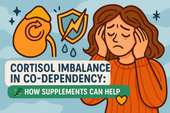
Cortisol Imbalance in Co-Dependency: How Supplements Can Help
Cortisol is the body’s main stress hormone—essential for energy and focus, yet harmful when chronically elevated. When life feels like constant pressure, cortisol imbalance can trigger fatigue, anxiety, and mood swings. Learning how to restore balance through rest, nutrition, and the right supplements can help you rebuild calm, clarity, and resilience from the inside out. 🌿💫
-
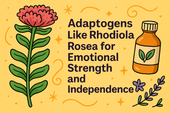
Adaptogens Like Rhodiola Rosea for Emotional Strength and Independence
Adaptogens are nature’s stress-balancing herbs—plants like Rhodiola, Ashwagandha, and Holy Basil that help your body adapt to emotional and physical pressure. They don’t numb or overstimulate; they teach your system how to find calm and stability again. By restoring balance to your hormones, energy, and mood, adaptogens nurture emotional resilience and grounded strength. 🌿✨
-
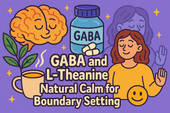
GABA and L-Theanine: Natural Calm for Boundary Setting
Anxiety can feel like a storm inside your mind—constant tension, overthinking, and the inability to relax even when you’re safe. But beneath the chaos, your body is simply trying to protect you. Learning to calm anxiety starts with understanding how your brain and nervous system respond to stress—and how to gently guide them back to peace. 🌿💫
-
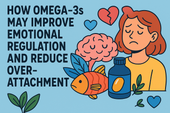
How Omega-3s May Improve Emotional Regulation and Reduce Over-Attachment
Inflammation isn’t just about sore joints or fatigue—it’s also a hidden driver of mood swings, anxiety, and emotional burnout. When chronic stress or poor diet keep the body inflamed, the brain’s chemistry changes, making calm harder to access. Learning how to reduce inflammation through nutrition, rest, and mindful living helps restore balance from the inside out. 🌿💫
-
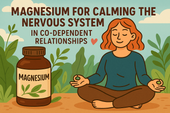
Magnesium for Calming the Nervous System in Co-Dependent Relationships
The nervous system is the body’s communication network, linking your mind and organs through a delicate web of electrical signals. It controls everything from emotional responses to muscle movement—and when it’s overwhelmed by chronic stress or anxiety, balance is lost. Learning how to calm and nourish your nervous system through nutrition, mindfulness, and rest can restore peace and emotional stability. 🌿💫
-
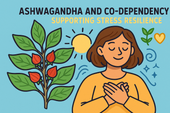
Ashwagandha and Co-Dependency: Supporting Stress Resilience
Stress is more than a feeling—it’s a full-body signal that your system is overwhelmed. When the mind races and the body tenses, your hormones, breathing, and focus all shift into survival mode. Chronic stress doesn’t just affect emotions—it reshapes your nervous system, drains your energy, and clouds your clarity. Learning to understand and manage stress gently is the first step toward peace, balance, and true recovery. 🌿💫
-

Why Co-Dependency Feels Draining: Adrenal Fatigue and Supplements That Help
The adrenal glands are small but powerful organs that sit above your kidneys, acting as your body’s built-in stress managers. They produce hormones like cortisol and adrenaline that help regulate energy, mood, and resilience. When they’re overworked from chronic stress or emotional exhaustion, fatigue and imbalance follow. Supporting adrenal health naturally can help restore calm, energy, and hormonal balance. 🌿⚡
-

The Link Between Anxiety, Co-Dependency, and Natural Support
Anxiety feels like living in constant alert mode—your heart races, your thoughts loop, and your body can’t find peace. It’s the nervous system’s way of preparing for danger, even when none exists. Understanding what’s happening in your mind and body is the first step toward calming the storm and restoring balance. 🌿💫
-

How Emotional Exhaustion in Codependency Impacts the Nervous System
The nervous system is the body’s communication network, connecting the brain to every organ and muscle. It regulates stress, mood, and emotion through a delicate balance of electrical and chemical signals. When overwhelmed, it can become dysregulated—leading to fatigue, anxiety, and emotional imbalance. Understanding how to calm and strengthen the nervous system is key to healing from chronic stress and emotional burnout. ⚡🌿
-

What Is Co-Dependency? The Role of Brain Chemistry and Stress
Stress is more than a feeling—it’s a full-body experience that begins in the brain and ripples through every cell. When cortisol surges and the nervous system stays on alert, your body can’t rest or recover. Over time, this constant tension affects energy, focus, mood, and even immune health. Understanding stress chemistry is the first step toward breaking free from burnout and finding calm again. 🌿
-

Creating a Supplement Stack for Motivation, Energy, and Anti-Procrastination
Motivation is the fuel behind every meaningful achievement—but it’s not just about willpower. It’s a mix of mindset, brain chemistry, and momentum. When energy, focus, and purpose align, action feels natural instead of forced. Learn how to harness motivation as a daily state, not a fleeting feeling.
-

Supplements for Building Consistency and Reducing Chronic Procrastination
Biochemistry is the bridge between biology and chemistry—the science of life at the molecular level. It explains how nutrients, hormones, and neurotransmitters interact to create energy, thought, and emotion. From brain function to muscle movement, biochemistry reveals the invisible processes that sustain health, balance, and vitality.
-

GABA and Procrastination: Supporting Calm Focus for Productivity
GABA is the brain’s natural calming messenger—a neurotransmitter that helps slow mental overactivity and ease stress. When GABA levels drop, focus fades, anxiety rises, and procrastination becomes more likely. By supporting GABA through nutrition, lifestyle, and supplements, you can restore calm clarity, improve focus, and take action with steady, balanced energy.
-

Ashwagandha and Procrastination: Lowering Stress to Improve Action
Science is the language of curiosity and discovery. It helps us understand the hidden patterns behind life, energy, and the universe. Through experimentation and critical thinking, science connects imagination to evidence—turning questions into knowledge. Whether through microscopes, molecules, or minds at work, science represents our endless pursuit of truth and innovation.
-

Neurotransmitters and Motivation: Supplements That Support Drive and Focus
Supplements can do more than boost physical health—they can also enhance mental clarity, focus, and motivation. Nutrients like omega-3s, magnesium, B vitamins, and adaptogens help balance neurotransmitters, stabilize mood, and support brain energy. When combined with good sleep, nutrition, and mindful habits, they can transform how your brain performs under stress.
-

How Stress Hormones Like Cortisol Fuel Procrastination (and What Helps)
Blood sugar isn’t just about physical health—it directly impacts focus, mood, and motivation. When glucose levels spike and crash, energy and attention do the same, fueling procrastination and brain fog. Learning how to stabilize blood sugar through balanced meals, mindful habits, and key nutrients helps keep your mind steady, focused, and ready to act.
-

Brain Fog and Procrastination: Supplements for Mental Clarity
Brain fog can turn even simple tasks into mental hurdles. When your thoughts feel slow and unclear, procrastination often follows—making focus and productivity seem impossible. This article explores the biochemical and lifestyle causes of brain fog and reveals the most effective supplements for restoring mental clarity, focus, and sustained energy.
-

The Link Between Low Energy and Procrastination: Can Supplements Help?
Neurochemistry shapes how we think, feel, and act. When neurotransmitters like dopamine, serotonin, and GABA fall out of balance, it can lead to fatigue, anxiety, or lack of motivation—fueling procrastination and low mood. Understanding the brain’s chemical communication system helps us find ways to restore focus, calm, and emotional stability through nutrition, mindfulness, and targeted supplements.
-

Why Do We Procrastinate? The Role of Dopamine and Supplements That Support It
Dopamine is the brain’s motivation messenger—the chemical that fuels focus, reward, and drive. When dopamine levels drop, even simple tasks can feel impossible to start. This article explores how dopamine shapes procrastination, motivation, and mental energy, along with natural supplements and daily habits that help restore balance and get things done.
-

Phosphatidylserine and Stress Reduction for People with BDD
Stress is more than a mental state—it’s a full-body experience that affects hormones, brain chemistry, and emotional balance. For people with Body Dysmorphic Disorder (BDD), constant tension and worry about appearance can overload the nervous system. Learning how stress works and finding ways to calm it is key to breaking the cycle of anxiety and self-criticism.
-

How Antioxidants Like Vitamin C & E Support Mental Health in BDD
Antioxidants are the body’s natural defense against stress and inflammation. For people with Body Dysmorphic Disorder (BDD), oxidative stress can worsen fatigue, anxiety, and emotional imbalance. Nutrients like Vitamin C and E help protect brain cells, boost neurotransmitter function, and support a calmer, clearer mindset—building a stronger foundation for recovery.
-

Ginkgo Biloba and Memory Support for BDD Recovery
Emotional regulation is the foundation of healing from Body Dysmorphic Disorder (BDD). When the nervous system stays in constant overdrive, even small stressors can trigger self-critical spirals. Learning to calm emotional reactivity helps restore clarity, confidence, and a sense of inner balance. By blending mindfulness, nervous system support, and self-compassion, you can retrain your brain to respond—not react—to emotion.
-

Alpha GPC and Cognitive Function in Body Dysmorphic Disorder
Mental fatigue can feel like your brain has hit a wall—thoughts slow down, focus fades, and motivation disappears. For people with Body Dysmorphic Disorder (BDD), chronic overthinking, emotional stress, and constant self-evaluation can deplete mental energy even further. Understanding what causes this cognitive exhaustion is the first step toward recovery—through rest, balanced nutrition, and targeted brain-supporting supplements.
-

N-Acetyl L-Tyrosine and BDD: Supporting Mental Clarity
Chronic stress doesn’t just affect your mood—it reshapes your brain chemistry, weakens focus, and fuels the obsessive thought loops common in Body Dysmorphic Disorder (BDD). Over time, constant cortisol elevation drains mental energy and emotional balance. Learning to recognize and manage chronic stress is essential to restoring mental clarity, self-compassion, and resilience.
-

Chamomile and Lavender for Calming Obsessive Body Image Thoughts
The nervous system is the command center of our emotional and physical world—and in Body Dysmorphic Disorder (BDD), it often operates in overdrive. Understanding how the brain and body communicate under stress reveals why intrusive thoughts feel uncontrollable. Learning to regulate the nervous system through calm practices, nutrition, and supplements helps restore inner balance and emotional safety.
-

Adaptogens for Body Dysmorphic Disorder: Rhodiola, Ginseng, and More
Rhodiola rosea, often called the “golden root,” is an adaptogenic herb renowned for boosting stress resilience and mental endurance. For individuals with Body Dysmorphic Disorder (BDD), Rhodiola may help reduce fatigue, regulate cortisol, and enhance emotional balance. By supporting both mind and body, this powerful plant promotes calm focus, improved mood, and renewed energy to face daily challenges.
-

B Vitamins for Stress Resilience in BDD: Rebuilding Calm from Within
Biochemistry is at the heart of every thought, emotion, and reaction we experience. In Body Dysmorphic Disorder (BDD), chemical imbalances in neurotransmitters like serotonin, dopamine, and GABA can amplify stress and distort self-perception. Understanding the biochemistry behind mood and stress regulation offers a path toward healing—bridging the gap between emotional experience and the body’s molecular balance.
-

Melatonin and Body Dysmorphic Disorder: Restoring Healthy Sleep Patterns
Melatonin, the body’s natural sleep hormone, plays a vital role in helping people with Body Dysmorphic Disorder (BDD) restore healthy sleep cycles. When anxiety and obsessive thinking interfere with rest, melatonin levels often drop, leading to more emotional reactivity and distorted self-perception. This article explores how melatonin works, why BDD disrupts it, and how natural supplementation—combined with mindful routines—can help the brain and body finally find calm at night.
-

Sleep Struggles with BDD: Supplements for Rest and Recovery
When you’re living with Body Dysmorphic Disorder (BDD), restful sleep can feel impossible—but the right supplements can help reset your body’s natural rhythm. From magnesium and L-theanine to 5-HTP and ashwagandha, these nutrients support relaxation, lower cortisol, and enhance melatonin production. This article explores how supplements can calm the mind, ease nighttime anxiety, and promote true restorative sleep for emotional and physical recovery.
-

5-HTP and Serotonin Balance: Could It Help with Body Dysmorphic Disorder?
Anxiety can feel like a storm inside the mind—restless, overwhelming, and hard to control. In people with Body Dysmorphic Disorder (BDD), anxiety often fuels obsessive thoughts and self-criticism, creating a painful cycle of worry and self-doubt. This article explores the biological roots of anxiety, the role of neurotransmitters like serotonin and GABA, and how natural strategies such as mindfulness, supplements, and nervous system regulation can restore calm and mental clarity.
-

Can Ashwagandha Help Ease Stress and Anxiety in Body Dysmorphic Disorder?
Neurotransmitters like serotonin, dopamine, GABA, and acetylcholine are the chemical messengers that shape how we think, feel, and react to stress. In Body Dysmorphic Disorder (BDD), imbalances in these neurotransmitters can amplify anxiety, obsessive thinking, and emotional distress. This article explores how restoring healthy brain chemistry through nutrition, supplements, and mindfulness can help bring clarity, calm, and emotional stability.
-

L-Theanine for BDD: Finding Calm in the Mind
Neurochemistry plays a central role in how we think, feel, and see ourselves. For those living with Body Dysmorphic Disorder (BDD), imbalances in neurotransmitters like serotonin, dopamine, and GABA can intensify anxiety, obsessive thoughts, and emotional distress. This article explores how regulating brain chemistry through supplements, mindfulness, and lifestyle changes can bring the nervous system back into harmony and restore inner calm.
-

Omega-3 Fatty Acids and Body Image Disorders: Supporting Emotional Health
Omega-3 fatty acids do far more than support heart health—they nourish the brain, stabilize mood, and may ease the emotional turbulence tied to body image disorders like BDD. This in-depth article explores how omega-3s regulate serotonin, dopamine, and inflammation, helping individuals reduce obsessive thoughts and rebuild self-acceptance. It also connects nutrition to therapy, mindfulness, and nervous system balance for holistic emotional healing.
-

Magnesium and BDD: Calming an Overactive Nervous System
Magnesium plays a crucial role in calming an overactive nervous system—something people with Body Dysmorphic Disorder (BDD) struggle with daily. This article explores how magnesium supports relaxation, emotional regulation, and stress reduction while diving into the science behind its connection to brain chemistry. It also examines how combining magnesium supplementation with therapy and breathwork can help rebalance the body’s stress response, reduce obsessive thought patterns, and promote lasting nervous system calm.
-

The Gut-Brain Axis and BDD: Why Probiotics Might Matter
The gut and brain are constantly in conversation — and that dialogue may shape how you experience Body Dysmorphic Disorder. By nurturing your microbiome with probiotics, prebiotics, and gut-healing nutrients, you can help rebalance serotonin, calm anxiety, and restore emotional stability from within 🧠🦠.
-
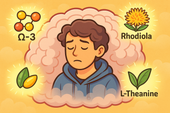
Brain Fog and Body Dysmorphic Disorder: Can Nootropic Supplements Help?
Brain fog often accompanies Body Dysmorphic Disorder, clouding focus and deepening emotional fatigue. Nootropic supplements like L-theanine, Rhodiola, and CoQ10 can help restore mental clarity, balance neurotransmitters, and bring calm energy back to the mind 🌿🧠.
-

How Stress Hormones Like Cortisol May Worsen Body Dysmorphic Disorder
Chronic stress floods the brain with cortisol — the hormone that keeps you on high alert. In Body Dysmorphic Disorder, this chemical overdrive fuels anxiety, distorts self-image, and traps the body in survival mode. Calming cortisol helps restore both peace and perspective 🌿🧠.
-

The Role of Neurotransmitters in BDD—and How Supplements May Help
Neurotransmitters like serotonin, dopamine, glutamate, and GABA shape how people with Body Dysmorphic Disorder perceive themselves. When these brain messengers fall out of balance, perception distorts — but targeted supplements can help restore calm, focus, and emotional regulation 🧠🌿.
-

What Is Body Dysmorphic Disorder? A Deeper Look at the Mind-Body Connection
Body Dysmorphic Disorder (BDD) isn’t just about appearance — it’s about perception. When brain chemistry, trauma, and stress distort self-image, the mind begins to see flaws that aren’t truly there. Healing starts by calming the nervous system and reconnecting mind and body 🪞🧠.
-

Keeping Calm in Competitive Sports: How to Train Your Mind, Body, and Chemistry for Peak Performance
Competitive pressure can overwhelm even the strongest athletes — but calm is trainable. By combining supplements like magnesium, L-theanine, and adaptogens with breathwork and mindset training, you can stay focused, balanced, and in control under any level of stress 🧠🏅.
-
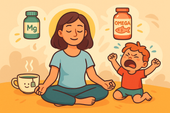
Supplements for Parents Facing Toddler Tantrums: Staying Calm When Little Emotions Run Wild
Toddler tantrums can drain even the most loving parent — but your calm is powerful. With the right supplements like magnesium, L-theanine, and ashwagandha supporting your nervous system, you can stay patient, grounded, and kind, even when emotions run high 🧸🌿.
-

Workplace Stress and Anger Management Support
Workplace stress can quickly turn into frustration — but calm is a skill you can train. By combining supplements like magnesium, L-theanine, and adaptogens with breathwork and mindset tools, you can stay focused, patient, and emotionally grounded no matter how intense the office gets 💼🌿.
-

How to Stay Patient With Family During Stressful Holidays
Holiday gatherings can stir up old stress and test your patience — but calm is possible. With nervous system support from magnesium, L-theanine, and adaptogens, plus mindful breathing and clear boundaries, you can stay centered, kind, and grounded even when family chaos unfolds 🎄💞.
-

Supplements to Keep Calm During Traffic Jams
Getting stuck in traffic doesn’t have to ruin your mood. With calming supplements like magnesium, L-theanine, and ashwagandha, you can train your body to stay relaxed and focused behind the wheel — turning gridlock into a moment of grounded patience 🚗🌿.
-
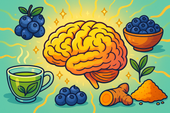
The Role of Antioxidants in Healing Brain Stress from Dissociation
Antioxidants protect the brain from the oxidative stress caused by trauma and dissociation. By neutralizing free radicals and supporting mitochondrial recovery, they help restore clarity, focus, and emotional balance — allowing the mind to heal at the cellular level 🌿🧠.
-
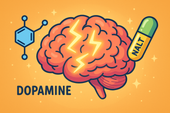
N-Acetyl L-Tyrosine (NALT) for Supporting Mental Clarity
N-Acetyl L-Tyrosine (NALT) fuels dopamine production — the neurotransmitter of focus and motivation. By supporting brain chemistry during stress, NALT helps restore mental clarity, energy, and alertness, making it easier to think clearly and feel present again ⚡🧠.
-

How Ginseng May Improve Focus and Energy in Dissociation
Ginseng helps combat the mental fatigue and fog that often come with dissociation. By supporting mitochondrial energy, balancing neurotransmitters, and regulating cortisol, it gently restores focus, motivation, and emotional presence — helping the mind reconnect with clarity and strength 🌿⚡.
-
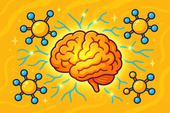
Phosphatidylserine and Dissociation: Supporting Cognitive Function
Phosphatidylserine helps calm the stress response by balancing cortisol, the body’s primary stress hormone. By lowering cortisol spikes, it protects memory, focus, and emotional stability — restoring clarity and mental presence for those struggling with dissociation 🧠🌿.
-
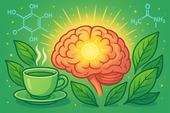
Can Green Tea Extract Help with Dissociative Brain Fog?
Green tea extract may help lift dissociative brain fog by supporting neurotransmitter balance, reducing inflammation, and enhancing energy at the cellular level. With its key compounds EGCG and L-theanine, it promotes calm focus, clarity, and emotional presence — helping you feel more alert and grounded 🍵🧠.

















































